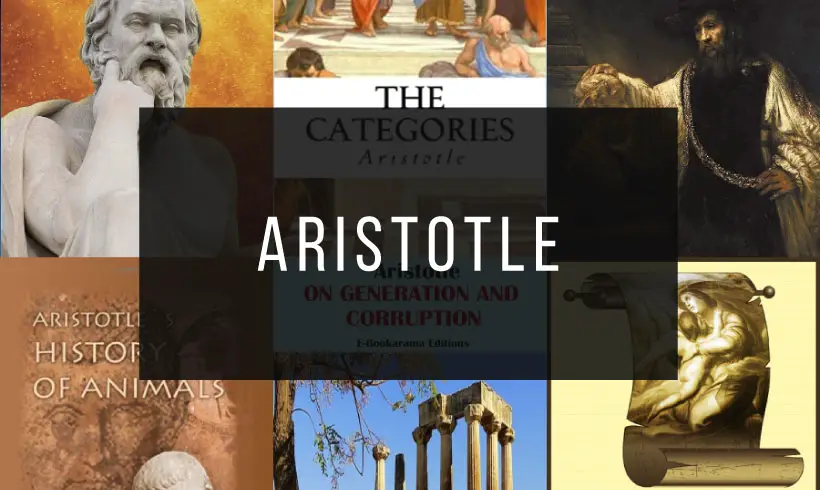Explore the intellectual legacy of one of the most influential philosophers in history with our collection of free PDF books on Aristotle.
Aristotle, a disciple of Plato and tutor to Alexander the Great, left an indelible mark in numerous fields of knowledge, including ethics, politics, metaphysics, logic, biology, and poetics.
From his foundational works such as “Nicomachean Ethics”, “Politics”, “Metaphysics”, and “Poetics” to studies and commentaries on his thought, our selection provides a profound insight into Aristotle’s contributions to the development of Western philosophy.
These books are essential resources for philosophy students, scholars, and anyone interested in understanding the ideas that have shaped Western thought and their application to contemporary challenges.
Download our collection of Aristotle’s books in PDF for free and immerse yourself in the analysis of the principles underlying ethics, politics, science, and art.
1) Metaphysics
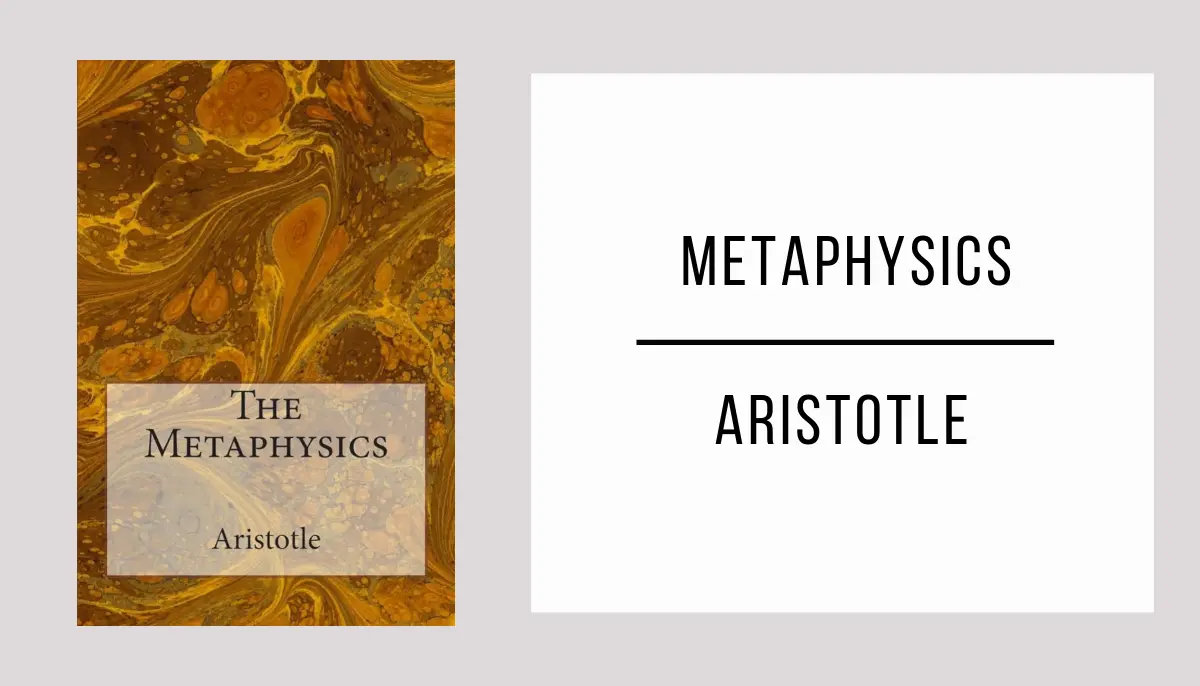
Metaphysics is a masterpiece of philosophical thought. Aristotle invites us to explore the foundations of knowledge and existence in a captivating and enigmatic text.
This treatise addresses essential themes such as cause and purpose, reality and substance, the nature of being and existence. Aristotle unravels the mysteries of reality itself, posing questions that remain relevant today.
Immerse yourself in Metaphysics and discover a universe of profound and insightful ideas. This book will challenge your way of thinking and lead you to reflect on the bedrock of reality.
2) Nicomachean Ethics
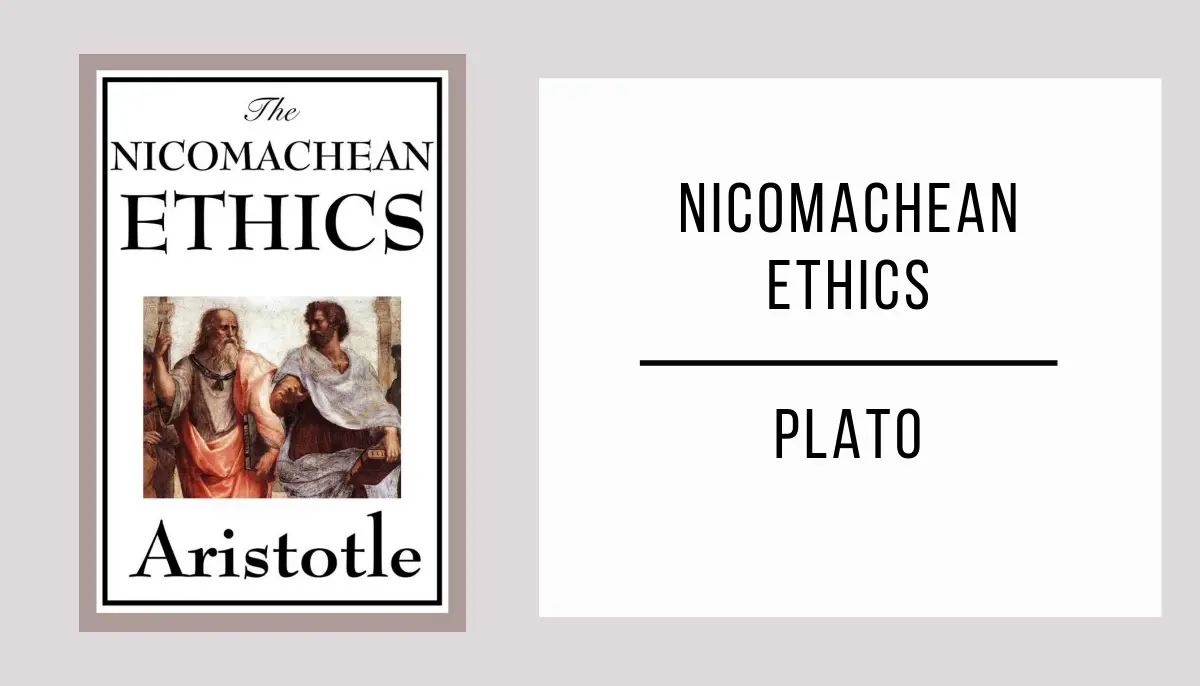
Nicomachean Ethics is a masterful work by Aristotle that explores the path to virtue and happiness, revealing the secrets of an ethical and fulfilling life.
Within its pages, Nicomachean Ethics unravels the mysteries of ethics and morality, delving into themes such as virtue, friendship, and justice, guiding us toward a profound understanding of how to live a full life in harmony with our human nature.
Immerse yourself in Aristotle’s timeless teachings and discover how to achieve true happiness through wisdom and virtue in Nicomachean Ethics.
3) Politics
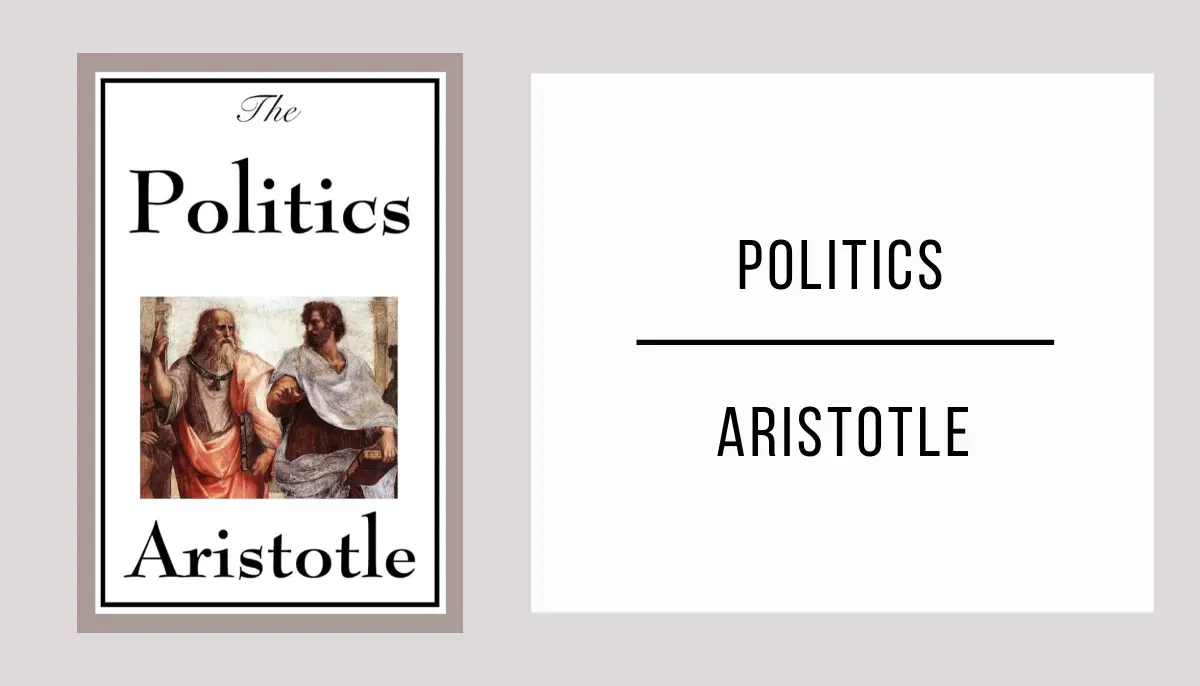
Politics by Aristotle is a classic treatise that explores the nature of politics and offers a profound insight into social organization and governance. With clear and concise prose, Aristotle guides us through an intellectual journey that remains relevant today.
This book addresses fundamental political themes such as justice, citizenship, virtue, and the common good. Aristotle examines different forms of government, analyzing their advantages and disadvantages, providing a valuable guide to understanding political systems and social dynamics.
Politics by Aristotle will challenge you to reflect on the purpose and function of politics in our lives and invite you to seek a deeper understanding of the foundations of society and governance.
4) Poetics
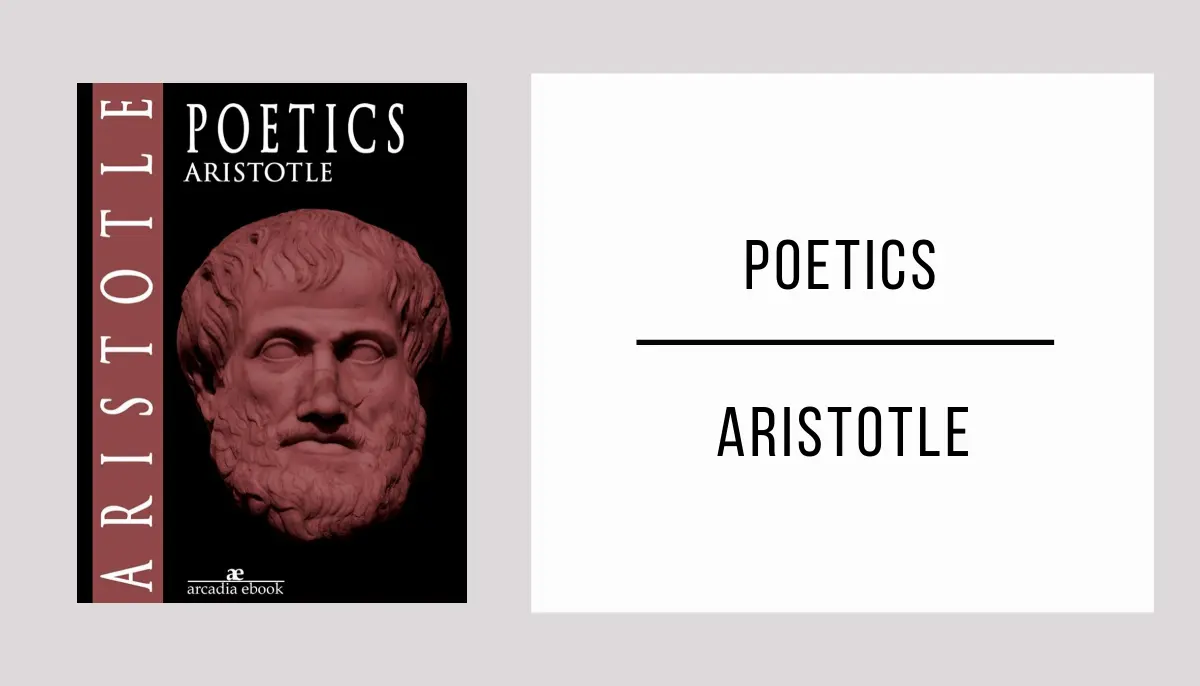
Poetics by Aristotle is a masterpiece that unveils the secrets behind the art of literary and theatrical creation. With clarity and depth, Aristotle explores the essential elements of drama and poetry, revealing techniques that have influenced literature for centuries.
In Poetics, Aristotle thoroughly examines the structure and fundamental elements of drama, such as plot, characters, and emotional catharsis. Additionally, he explores the difference between epic poetry and tragedy, offering valuable insights into artistic imitation and the role of tragedy in society.
Immerse yourself in Aristotle’s timeless teachings and uncover the secrets that have shaped Western literature. Poetics is an invaluable guide for writers, actors, and lovers of classical literature.
5) Physic
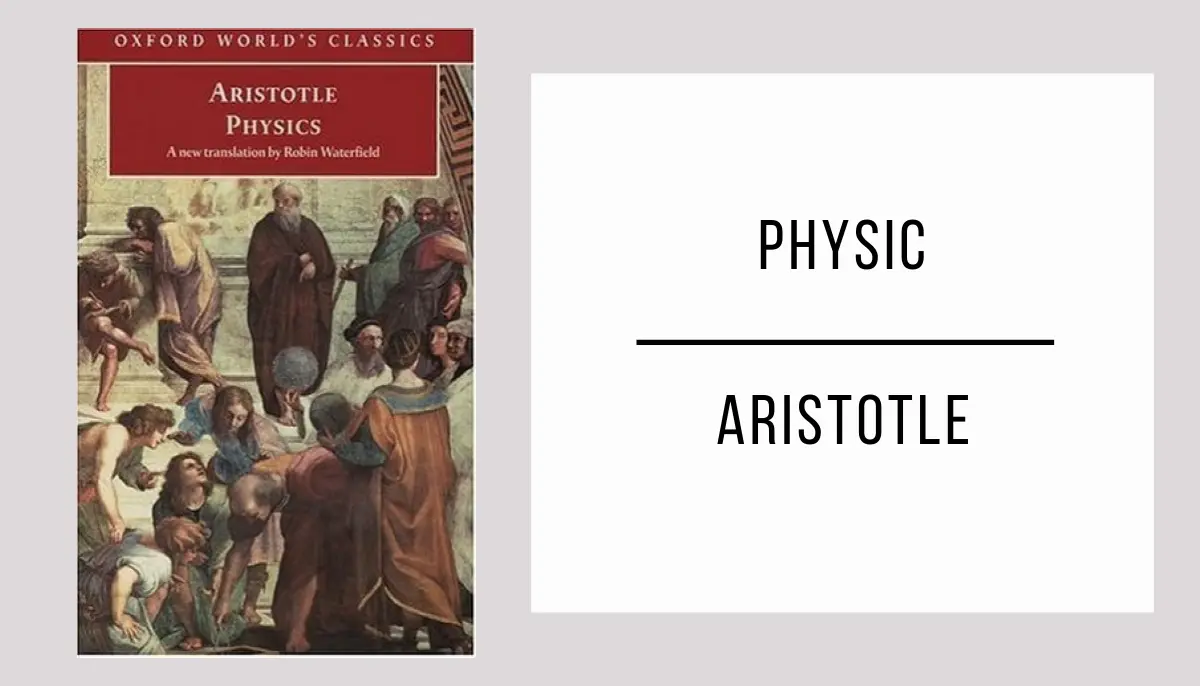
Physics is a philosophical treatise written by Aristotle in which he explores the mysteries of the universe and unveils the fundamental principles governing nature.
In Physics, Aristotle delves into concepts such as motion, cause and effect, time, and space, offering a unique and profound perspective on physics from a philosophical standpoint.
Immerse yourself in the pages of Physics and be captivated by Aristotle’s brilliance as you delve into the secrets of the cosmos.
6) On Interpretation
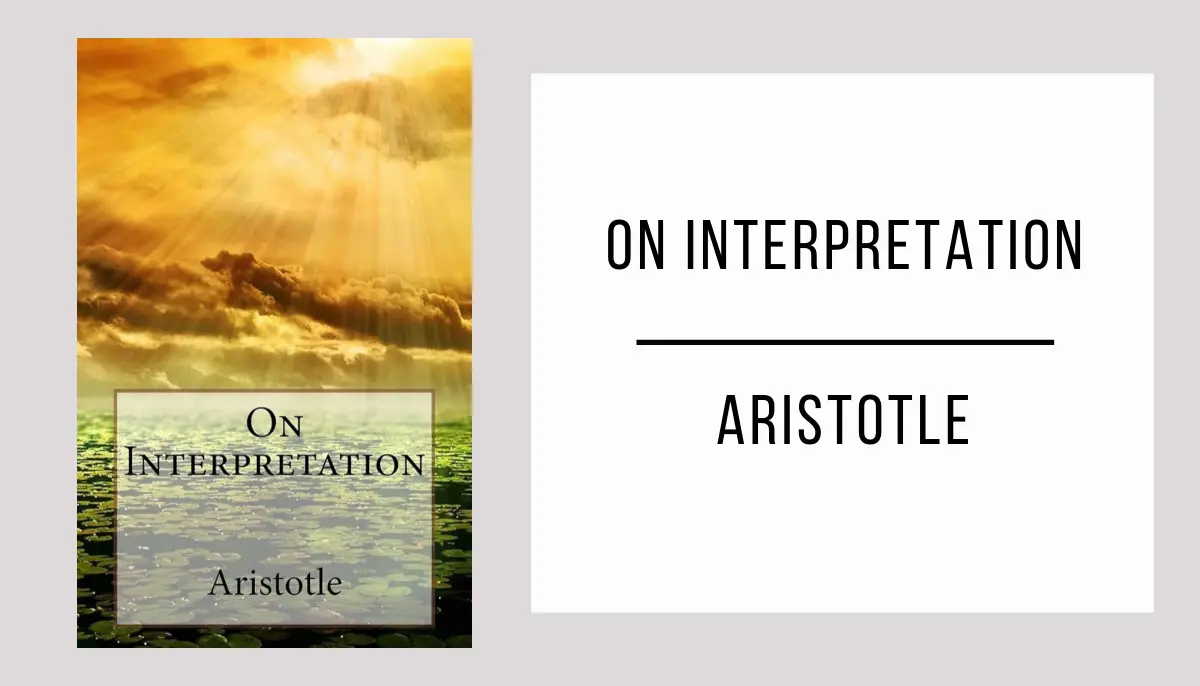
On Interpretation is a philosophical treatise that explores language and logic, offering an insightful perspective on the nature of communication and the validity of arguments.
Through this book, Aristotle delves into topics such as semantics, syntax, and the truth of statements, unveiling the foundations of logical thinking and the relationship between language and reality.
Immerse yourself in Aristotle’s timeless teachings and discover how the power of language and logic can expand your understanding of the world.
7) The Prior Analytics
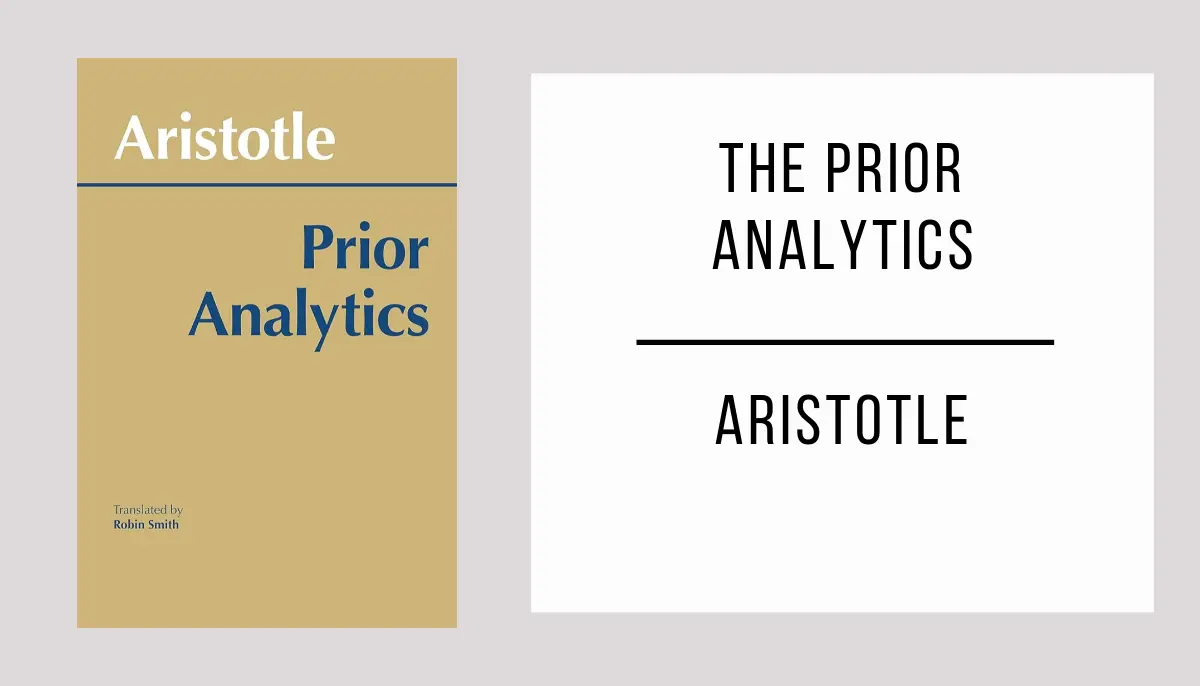
The book The Prior Analytics by Aristotle is a fascinating work that explores the foundations of logical thinking and analytical methodology. With clear and concise language, Aristotle immerses us in the world of reason and guides us through his deductive system.
In The Prior Analytics, Aristotle thoroughly and systematically examines the logical principles underlying human reasoning. Through a rigorous approach, the author unravels the concepts of propositions, syllogisms, and demonstrations, providing a solid foundation for the understanding of formal logic.
Dive into the pages of The Prior Analytics by Aristotle and discover the power of rational thinking. This book is an invitation to question our own beliefs and adopt a more critical and grounded perspective.
8) Posterior Analytics
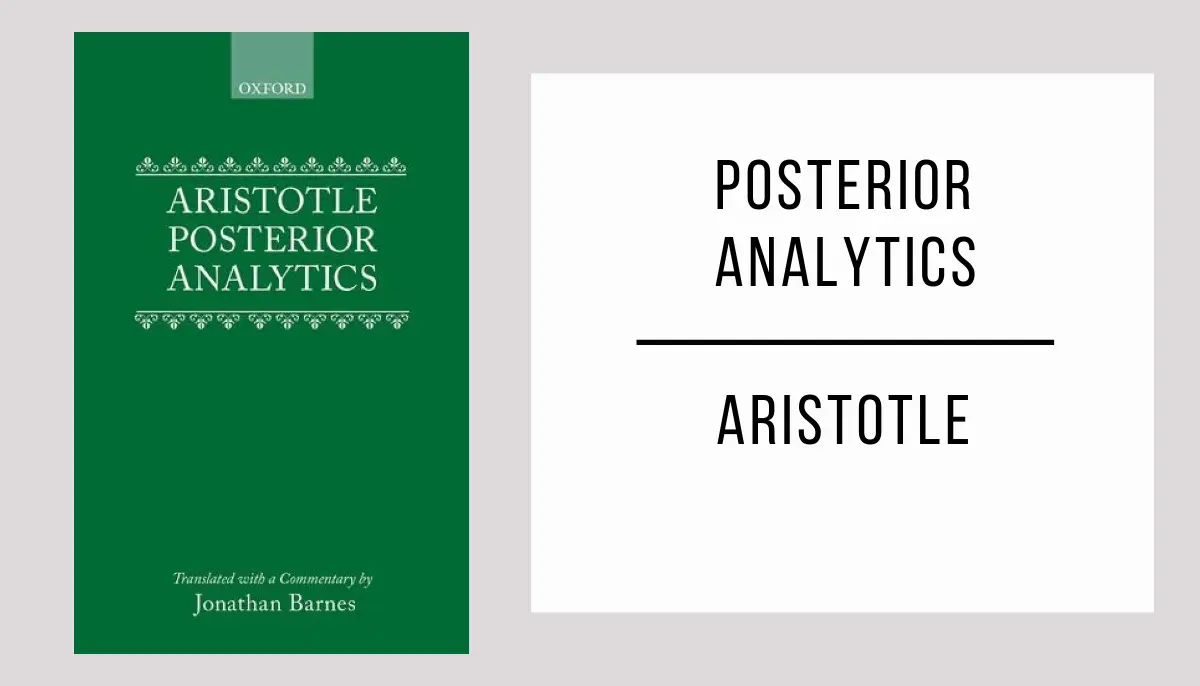
Posterior Analytics is a revolutionary philosophical work written by Aristotle that explores logic and scientific demonstration in a unique and profound manner.
Immerse yourself in the fascinating world of logic and the theory of demonstration with Posterior Analytics. Aristotle unravels the mysteries of logical reasoning and provides deep insights into constructing valid and sound arguments.
Discover Aristotle’s brilliant mind and broaden your intellectual horizons with Posterior Analytics. This philosophical masterpiece will challenge you to think more rigorously and critically, providing a solid foundation for knowledge and understanding of the world around you.
9) Categories
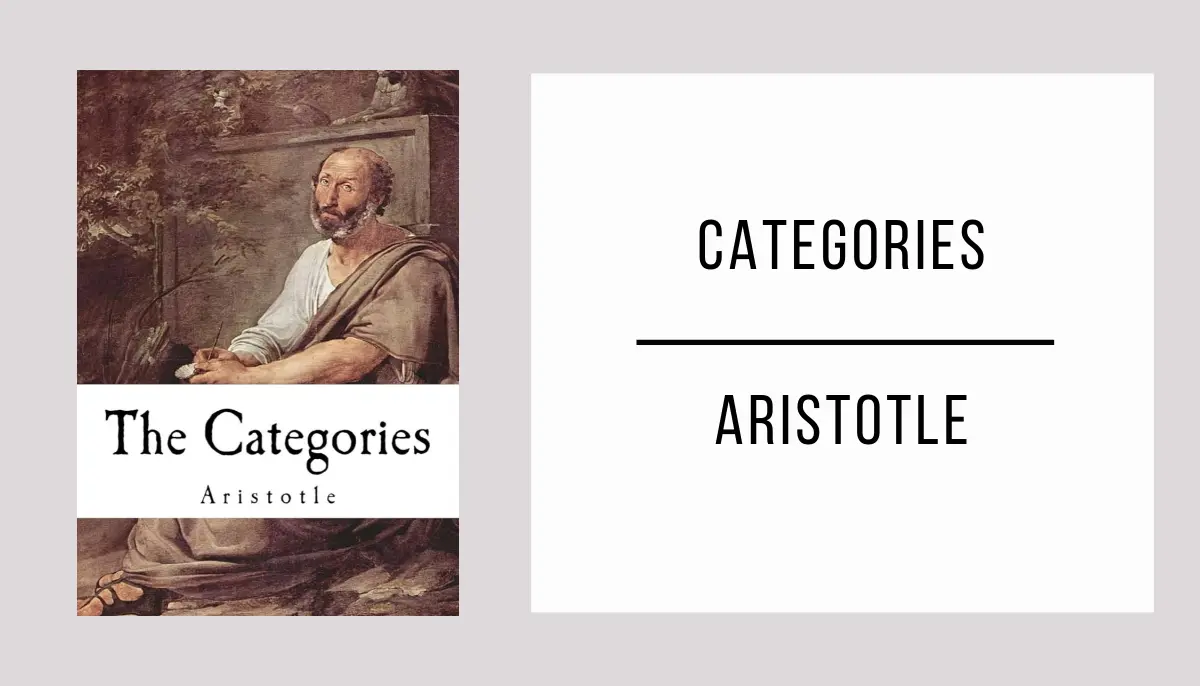
Aristotle’s Categories is a philosophical work that provides a unique and profound classification of reality. It explores ten modes of predication, revealing the essence of things and their relationship with language. Immerse yourself in this fascinating treatise that challenges our understanding of the world.
In Categories, Aristotle examines linguistic expressions and categorizes them into groups such as substance, quantity, quality, and action. This thematic analysis unveils the different dimensions of reality and how they can be described and understood through language.
Do you want to delve into the depths of knowledge and classification? Dive into Categories and challenge your preconceptions about how we comprehend the world.
10) Topics
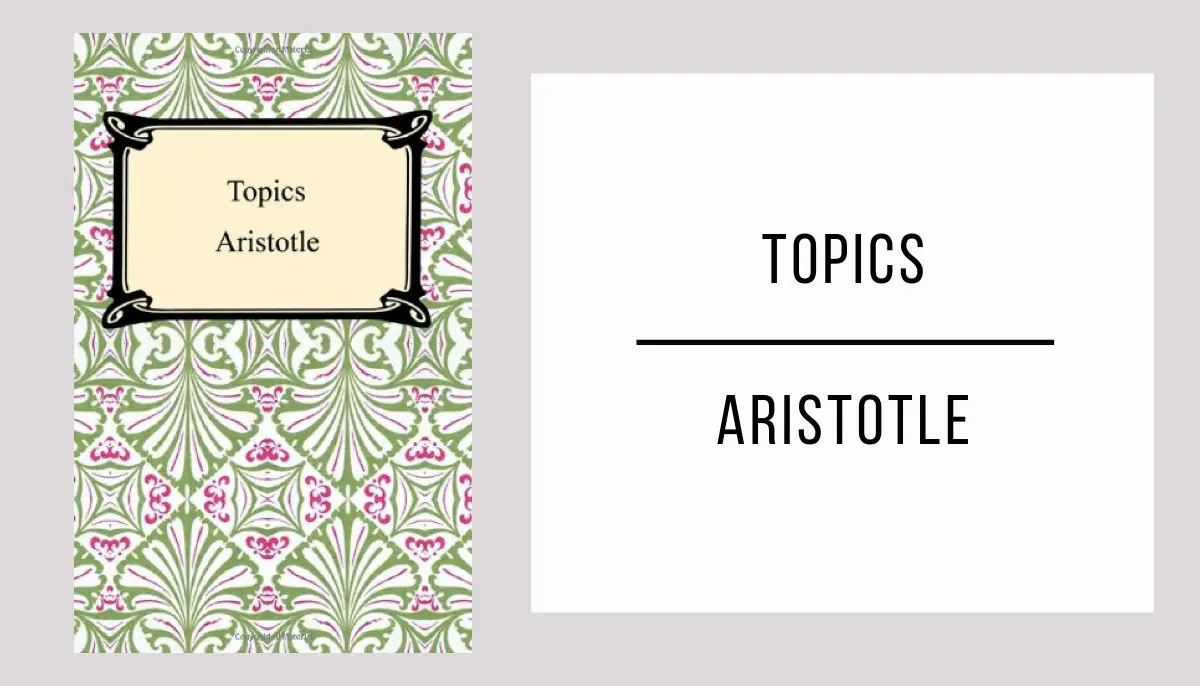
Topics, a masterpiece by Aristotle, unveils the secrets of argumentation and logic, showing us how to construct robust arguments instead of absolute certainties.
In Topics, Aristotle delves into the intricacies of propositions, the relationships between predicables and categories, and dialectical reasoning, providing a profound insight into logic and argumentation.
Immerse yourself in the pages of Topics and discover the fascinating mind of Aristotle as he guides you toward a deeper understanding of persuasion and the art of constructing valid arguments.
11) Rhetoric
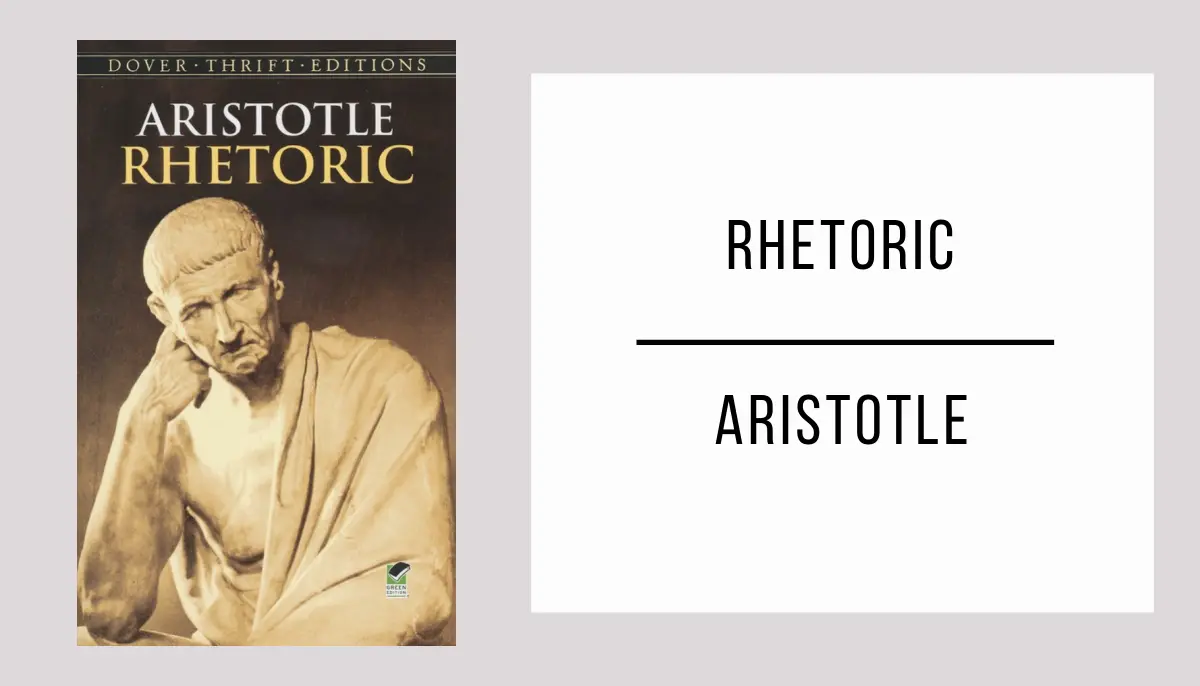
Rhetoric is a masterpiece written by Aristotle that unveils the secrets of persuasion and the art of discourse, revealing the keys to influencing and convincing through words.
Exploring topics such as logic, ethics, and psychology, Rhetoric immerses us in a profound analysis of rhetorical techniques, uncovering how to tailor discourse to the audience and situation to achieve maximum persuasive impact.
Dive into the pages of Rhetoric and discover the power of words. This Aristotelian classic will teach you to communicate effectively, turning you into a master of persuasion.
12) On the Soul
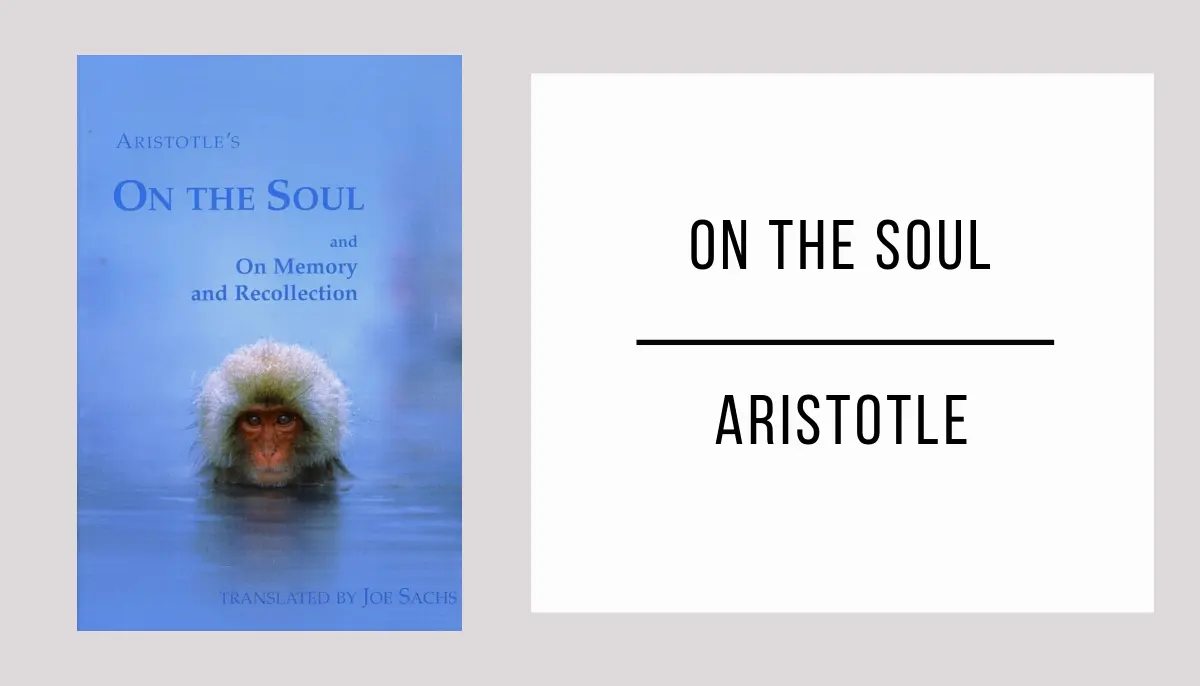
The book On the Soul by Aristotle is a profound exploration of the essence of human being. With clarity and conciseness, Aristotle examines the nature of the soul and its connection to the body, offering a unique and revealing insight into life and existence.
In On the Soul, Aristotle immerses us in a fascinating thematic analysis. Through his philosophical approach, he examines the relationship between the body and the soul, exploring topics such as perception, memory, and reason.
This book is an invitation to introspection and a unique opportunity to expand our knowledge of what truly makes us human.
13) History of Animals
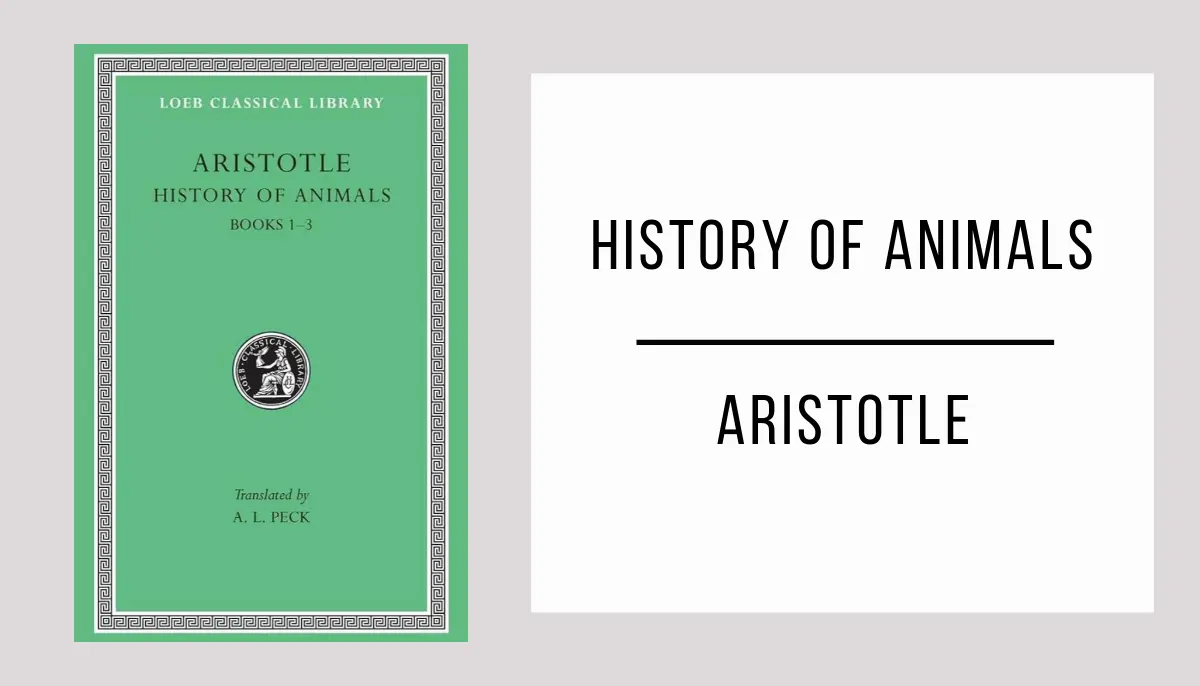
History of Animals is a fascinating journey through the diversity and marvels of the animal kingdom, written by the renowned philosopher Aristotle.
In this classical masterpiece, Aristotle meticulously examines the anatomy, behavior, and habitats of a wide variety of species, revealing astonishing details about the nature and interconnectedness of living beings.
Immerse yourself in the pages of History of Animals and discover a hidden world full of wonder and wisdom.
14) Generation of Animals
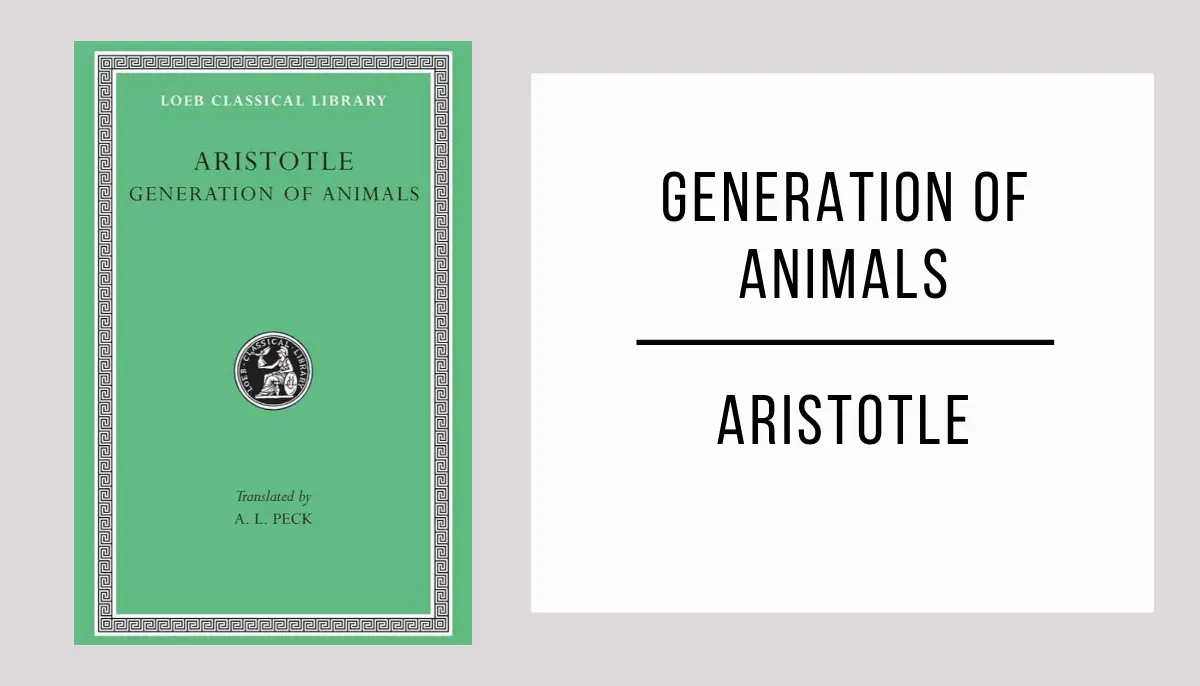
Generation of Animals is a fascinating treatise by Aristotle that explores the reproduction and embryonic development of various species, including humans. Immerse yourself in a journey through life and the creation of living beings through the words of the great Greek philosopher.
Across its five books, Generation of Animals addresses fundamental topics such as sex differentiation, early embryo development, reproduction of oviparous animals, and the causes of embryo sex.
Discover Aristotle’s enduring legacy and embark on a journey of knowledge about the generation and development of living beings. Generation of Animals invites you to explore the mysteries of life and gain a better understanding of our own existence in the world.
15) On the Parts of Animals
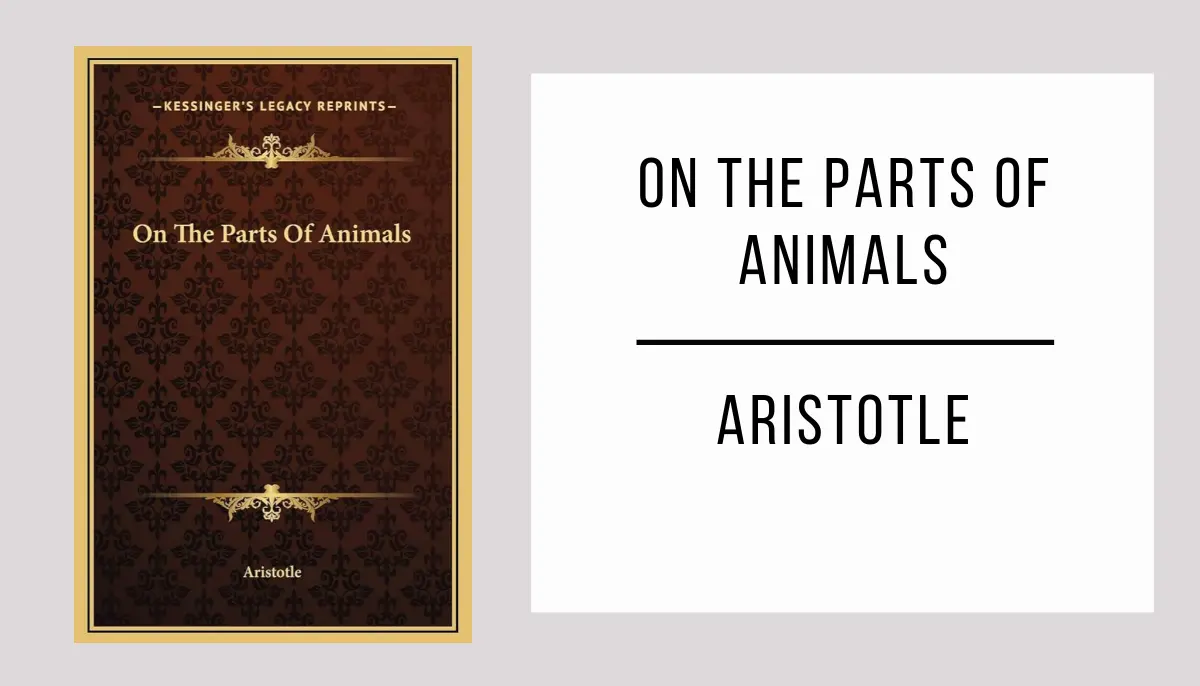
On the Parts of Animals is a fascinating treatise by Aristotle that unveils the anatomy and physiology of living creatures, exploring whether their parts were designed or arose by chance.
In this work, Aristotle applies his theory of causality to study life forms, emphasizing the importance of final cause and questioning dichotomous taxonomy. It reveals a profound scientific insight into the fundamental parts and elements that constitute animals.
Immerse yourself in the pages of On the Parts of Animals and uncover the mysteries of animal anatomy from the perspective of the great Aristotle.
16) On Generation and Corruption
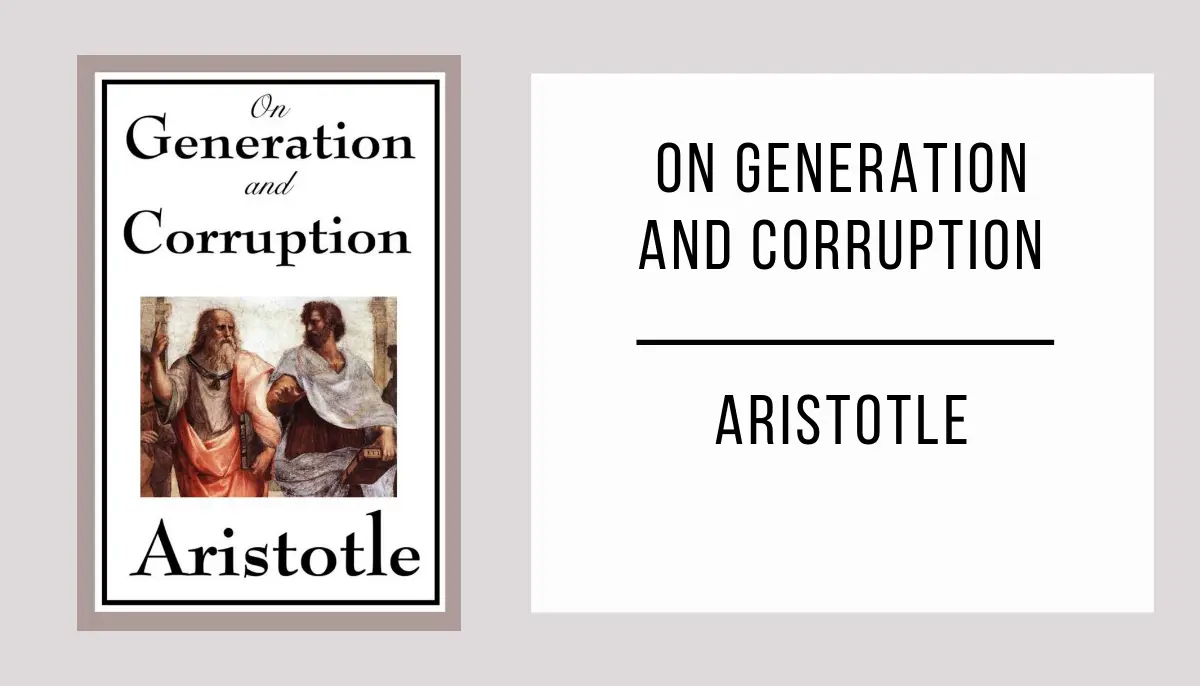
The book On Generation and Corruption by Aristotle is a fascinating work that explores the processes of creation and decay in nature and human society.
Within its pages, Aristotle deeply and insightfully analyzes the themes of generation and corruption, revealing the forces that drive life and destruction in the universe.
Immerse yourself in these powerful philosophical reflections and discover the very essence of existence in Aristotle’s On Generation and Corruption.
17) On the Heavens
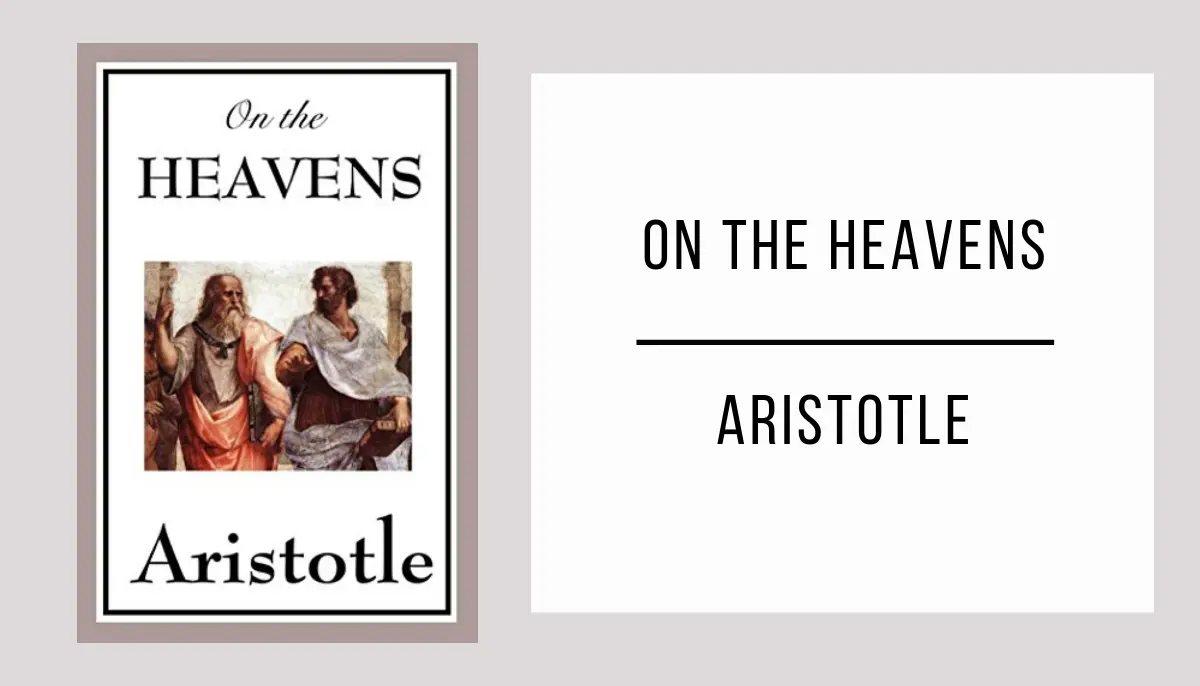
On the Heavens is a fascinating philosophical treatise written by Aristotle that explores the essence of the universe and the mysteries of celestial bodies.
In this work, Aristotle unfolds his perspective on astronomy and cosmology, revealing the importance of understanding the sphericity of the Earth, the motion of the stars, and the existence of an unmoved mover that propels everything.
Immerse yourself in the pages of On the Heavens and uncover the secrets of the cosmos through the pen of one of the greatest philosophers in history. A reading that will challenge you to reflect on our place in the universe and invites us to contemplate the greatness of the starry sky.
18) Meteorology
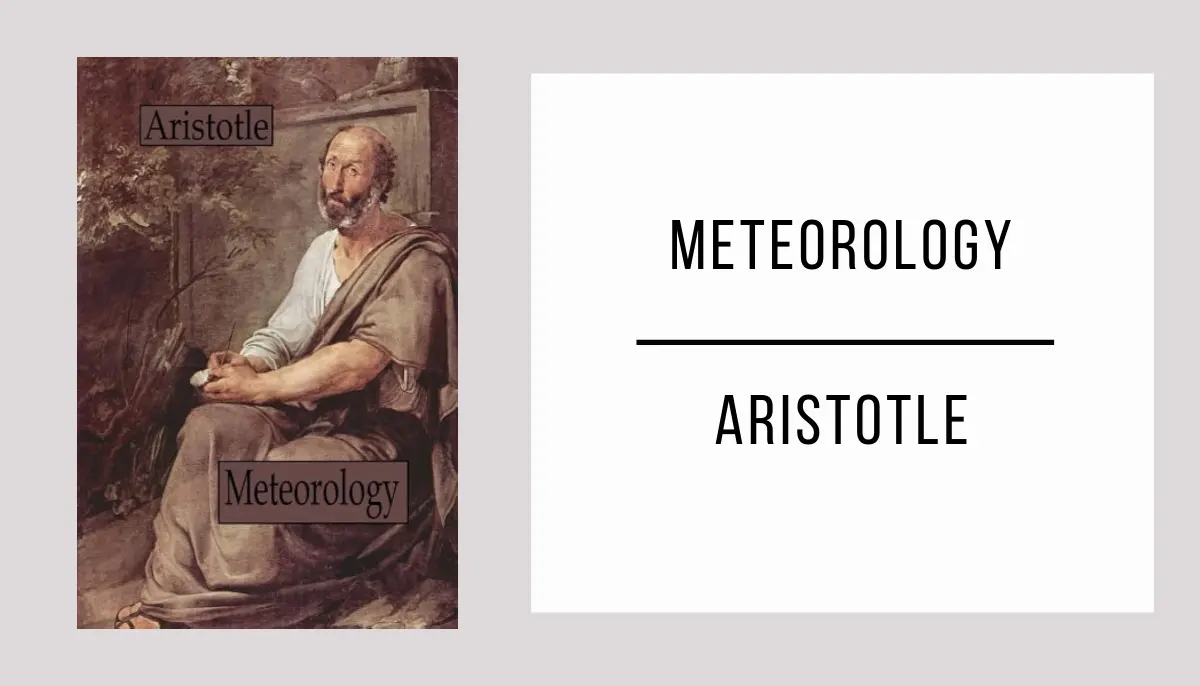
Meteorology is a classic treatise that explores the mysteries of weather and natural phenomena, written by the famous philosopher Aristotle.
Immerse yourself in the fascinating world of meteorology and astronomy through the eyes of Aristotle. In Meteorology, the author deeply analyzes atmospheric and celestial elements, providing a unique perspective on nature.
Let yourself be captivated by the brilliance of Aristotle and discover the incredible scientific and philosophical legacy he left us with Meteorology.
19) On Sense and the Sensible
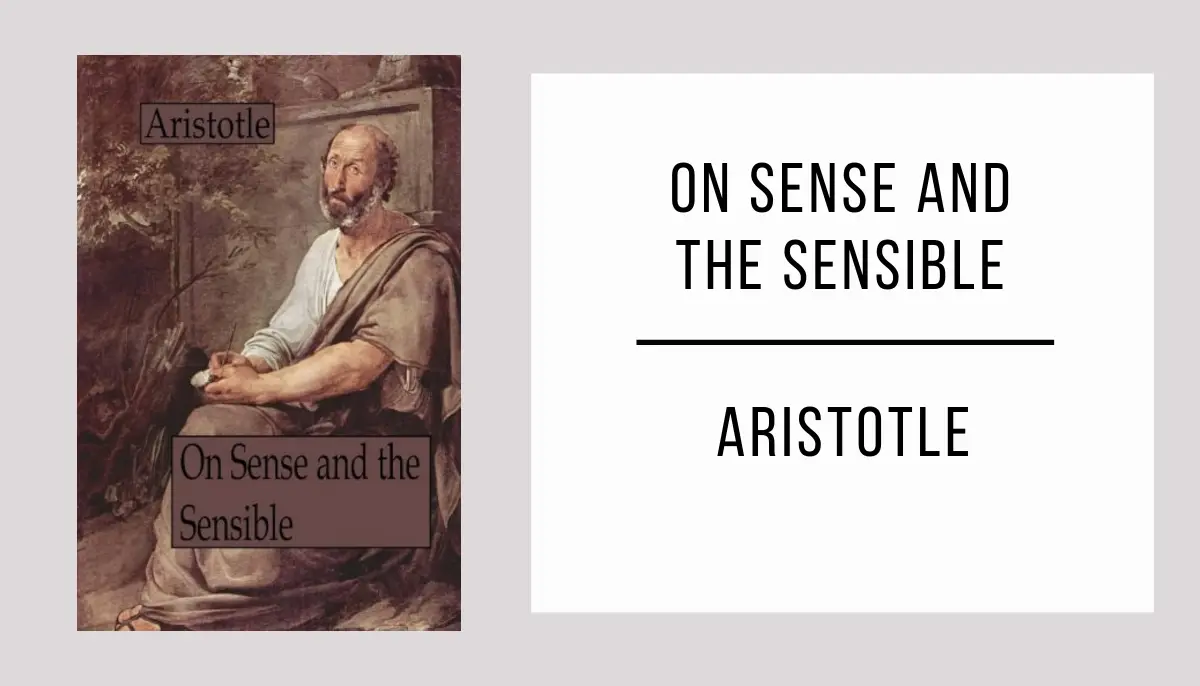
On Sense and the Sensible is a masterful work by Aristotle that explores the nature of perception and sensory experience, revealing the profound connection between our cognitive faculties and physical sensations.
Through meticulous philosophical reflection, Aristotle examines the human senses and their role in knowledge acquisition. From sight and hearing to touch and taste, each sense undergoes rigorous investigation, uncovering the complexity of our perceptual experience.
Immerse yourself in this classic work and discover how Aristotle unravels the mysteries of the sensory world. “On Sense and the Sensible” invites you to question your everyday perceptions and appreciate the fascinating interaction between the mind and body.
20) On Sophistical Refutations
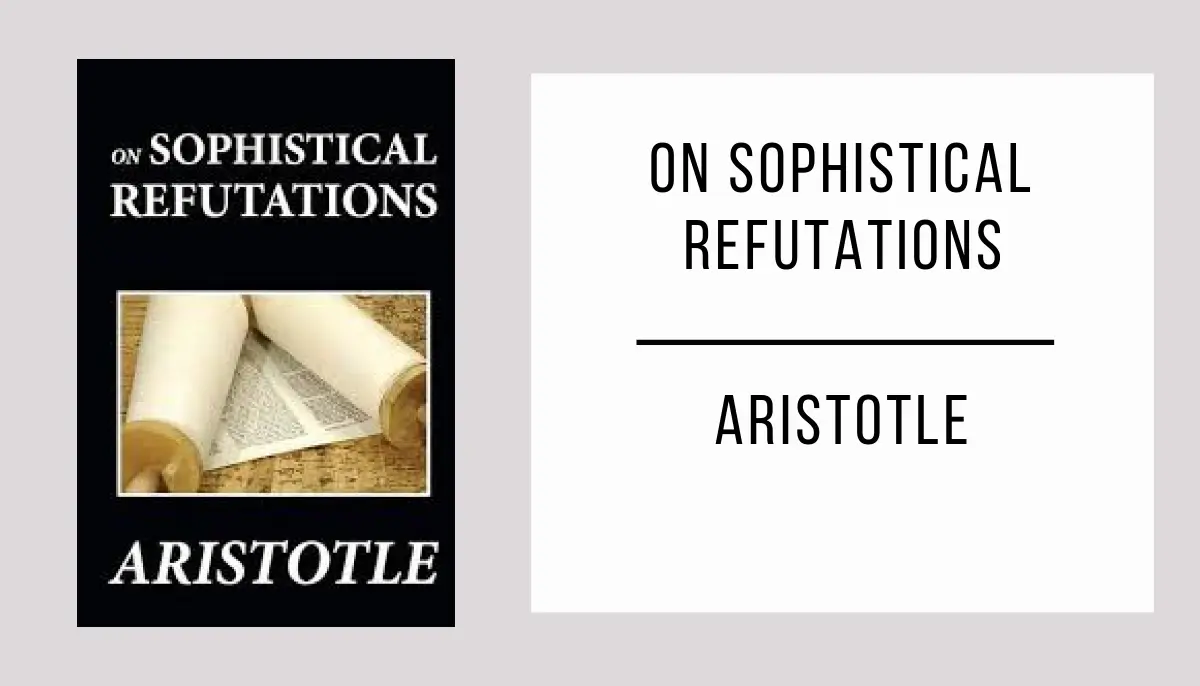
On Sophistical Refutations is a philosophical treatise written by Aristotle that dismantles deceptive arguments used by sophists, exposing fallacies and establishing a solid foundation for logical reasoning.
In this book, Aristotle explores logic and rhetoric, outlining methods to distinguish valid from invalid reasoning. Through rigorous analysis, he unveils the sophisms employed by rhetoricians in ancient Greece, providing a valuable lesson on the power of sound argumentation.
Immerse yourself in the depths of philosophical thought with Aristotle’s Sophistical Refutations. Discover how to dismantle fallacious arguments and strengthen your capacity for logical reasoning.
21) Magna Moralia
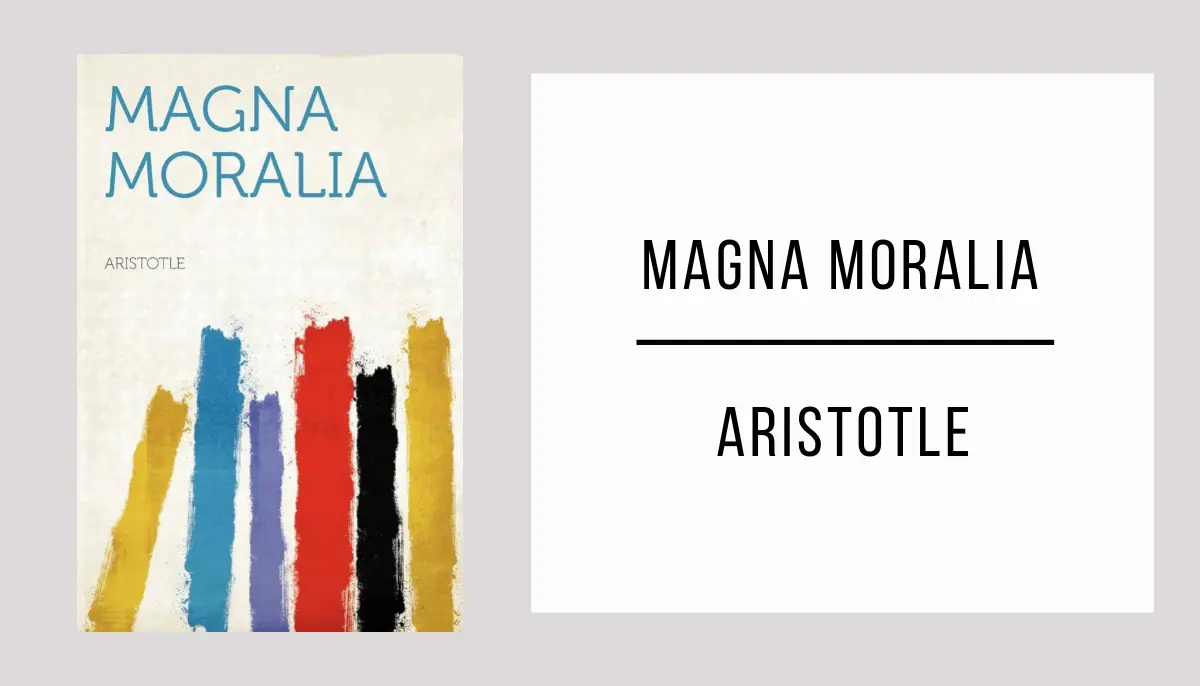
Magna Moralia by Aristotle, a masterpiece that immerses us in the depths of the ethical thinking of the most celebrated Greek philosopher.
In Magna Moralia by Aristotle, fundamental themes such as virtue, happiness, and justice are explored, providing a profound and insightful perspective on human conduct.
Dive into the pages of Magna Moralia by Aristotle and discover how this timeless classic can illuminate your path towards a more virtuous and meaningful life.
22) The Organon
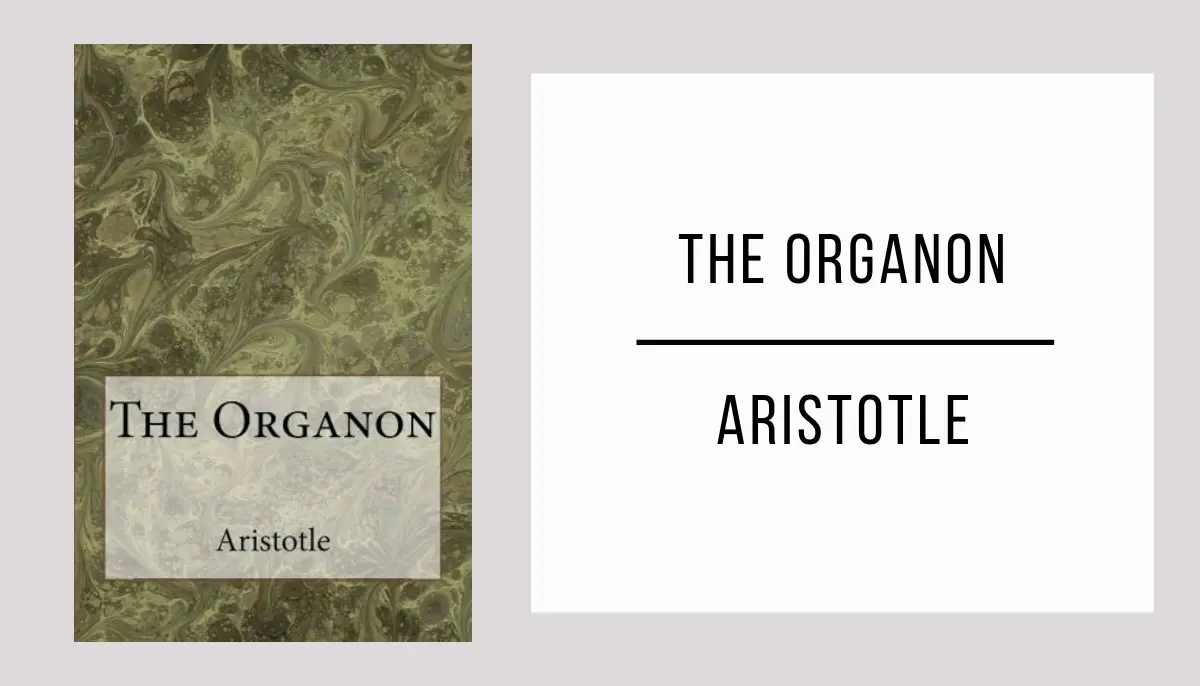
The Organon is Aristotle’s masterpiece, a profound exploration of logic and epistemology that laid the foundations for rational thinking. Immerse yourself in an unparalleled intellectual journey.”
“Through The Organon, Aristotle unravels the secrets of logic and reveals how we acquire valid knowledge. Discover the fundamentals of deduction, induction, and rigorous reasoning in this philosophically significant work.”
“Delve into the world of classical philosophy with The Organon. This book will challenge your concepts and invite you to question the very process of thought.
23) On Youth, Old Age, Life and Death, and Respiration
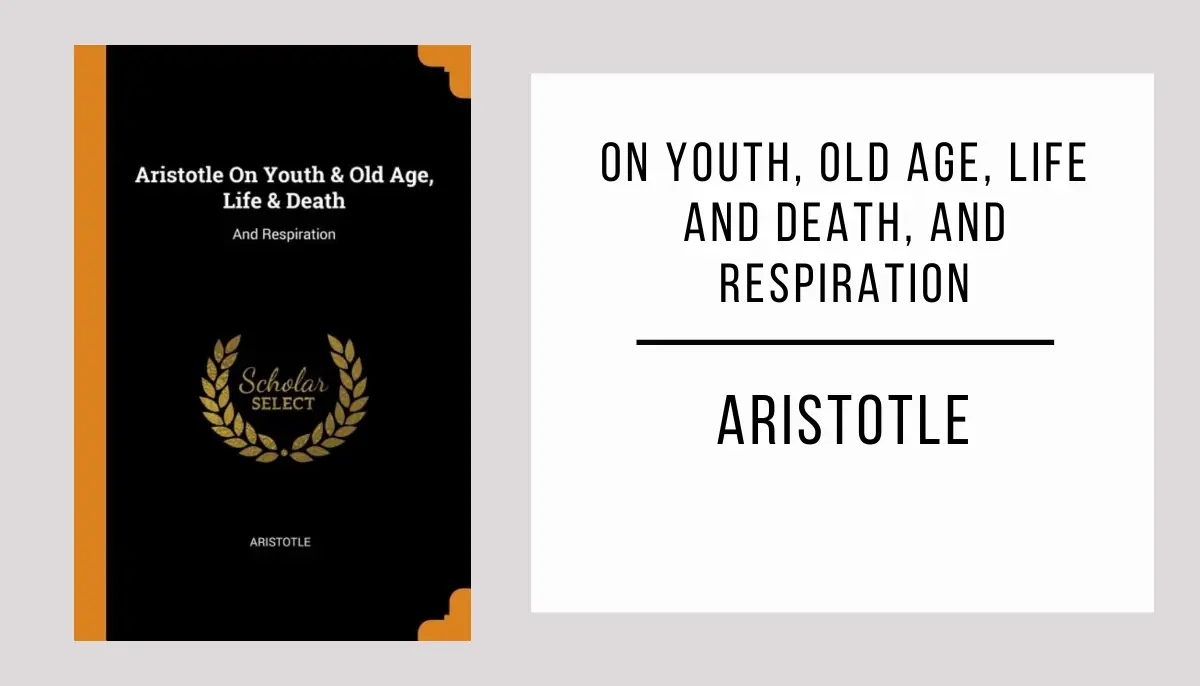
On Youth, Old Age, Life and Death, and Breathing is a fascinating treatise by Aristotle that explores the mysteries of human existence, from birth to the final breath, in clear and captivating language.
This book immerses us in a deep analysis of fundamental topics such as the nature of the soul, the functioning of the body, and the vital importance of respiration. Aristotle invites us to reflect on the cycle of life and the inevitable transition from youth to old age.
Through his wise words and keen observation of human nature, this book encourages you to contemplate the very essence of our existence and to appreciate each stage of life with a new perspective.


